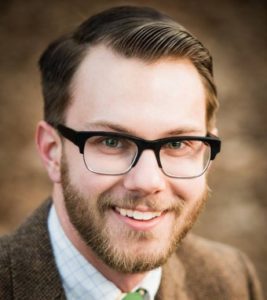In the next five to 10 years, moderate and progressive-leaning Baptist institutions of theological higher education are going to have to make some difficult decisions.
Theological education generally has been struggling for quite some time. The high watermark of church attendance in the U.S. in the middle of the 20th century also coincided with the high watermark of seminary enrollment. As church attendance has been in decline so, too, has enrollment in seminaries and divinity schools.
The costs of higher education also have soared in recent decades, creating even more of a barrier for individuals who might have considered a call to ministry otherwise. The challenges created by the pandemic with regard to online learning may have opened some seminaries and divinity schools up to new ways of thinking, but the pandemic also created a host of new challenges while exacerbating existing ones.
A new era began in 1989
Starting in 1989, moderate and progressive Baptists within the Southern Baptist Convention began to make the transition from relying upon the six regionally based SBC seminaries to new ventures in Baptist theological higher education. This began with Baptist Theological Seminary at Richmond but would grow to create Baptist houses of studies at schools like Duke, Wesleyan and Candler among others. Additional institutions were founded at Baptist or formerly Baptist colleges and universities like Mercer, Wake Forest, Campbell and Baylor. Rather than founding new schools, some of these former Southern Baptists went on to help sustain and nurture American Baptist schools like Central Theological Seminary.
“It is truly remarkable that so many possibilities for theological education emerged out of the 1990s.”
It is truly remarkable that so many possibilities for theological education emerged out of the 1990s. Even if schools like BTSR have since closed, this is the history of theological seminaries and divinity schools. Many do not last very long.
Recognizing the founding of these institutions in the 1990s, however, is significant. For the past three decades, many of the faculty who have led these institutions received their training from Southern Baptist schools. Today, you can still see the lingering influence of these networks on these institutions. Thirty years, however, means that this generation of Baptist intellectual leaders is retiring or nearing retirement age.
Such a reality would not be significant except for the reality that while these networks built numerous new institutions of theological higher learning, few generated programs that could produce the next generation of Baptist intellectual leaders. Baylor University, a notable exception, has a strong and thriving program across theological disciplines, but consolidating academic training to one institution is not intellectually responsible.
What’s different about the next generation
Increasingly, the next generation of Baptist intellectual leaders have gone to non-Baptist institutions — whether they be Methodist, Catholic or even public universities. This is a good thing. In the same way that Southern Baptists were and are apt to act in isolation, independently from other denominational bodies, many of these tendencies seeped into Southern Baptist academic institutions. Having Baptist scholars and academic learning in non-Baptist institutions opens up intellectual and creative possibilities for new ways of thinking and engaging the rapidly changing world around us.
While this reality of a generation of Baptist scholars and institution builders nearing retirement age and a new generation of intellectual leaders coming from diverse institutions may seem like an easy transition, it is far from it. The academic job market is challenging, and there is little support for younger scholars and academics who feel called to the classroom. Timing a retirement is not a great model for finding a job. More often than not, there simply are not opportunities for younger scholars to sharpen their skills in the classroom, engage the broader public and begin to shape these institutions for the future.
“The academic job market is challenging, and there is little support for younger scholars and academics who feel called to the classroom.”
The old Southern Baptist networks that once gave pastors and scholars few degrees of separation do not translate to a Baptist intellectual diaspora. It is hard to have a shared intellectual conversation across such wide and varying institutions without a more centralized and intentional effort. Organizations like the National Association of Baptist Professors of Religion have tried to sustain such intellectual networks, but gatherings often reveal stark generational divides between those present.
This generational difference sees younger scholars emerging from their doctoral work with significant loads of personal debt. Women and persons of color face the challenge of navigating predominantly white and male faculty at many of these institutions that too often intentionally and/or unintentionally tokenize their hire.
With the rise of the internet and instantaneous information, younger scholars have to fight challenges to their expertise and years of study. They have to resist claims that they are ivory-tower intellectuals who have little concern for congregational life. Individuals who spent five-plus years training to pursue their vocational calling within a classroom setting now also have to compete for adjunct positions, part-time faculty positions and, in some cases, programmatic positions with individuals who have found their way into academic settings by leveraging their experience as a practitioner. This is not to say that practical degrees like the doctor of ministry degree or experience in congregational leadership do not have a place in theological education; it is to say that their training is different.
I offer this description not as a critique but as an observation from someone within this younger generation of Baptist thinkers. Yes, denominations are shrinking. Yes, the numbers of students seeking theological education are declining. Yes, budgets are tight. All of these are true, but none of them are reasons not to make room for a new generation of Baptist teachers and thinkers.
There are many challenges facing theological education, but what better way to do it than in collaboration with fresh faces and new ways of thinking.
 Andrew Gardner is a visiting faculty associate of American religious history at Hartford International University for Religion and Peace (formerly Hartford Seminary) and Louisville Institute postdoctoral research fellow at the Hartford Institute for Religion Research, where he is working on a project exploring the impact of the pandemic on congregational life.
Andrew Gardner is a visiting faculty associate of American religious history at Hartford International University for Religion and Peace (formerly Hartford Seminary) and Louisville Institute postdoctoral research fellow at the Hartford Institute for Religion Research, where he is working on a project exploring the impact of the pandemic on congregational life.
Related articles:
Baptists in Virginia get two new theological education options
Hartford Seminary is now a university with an interreligious peacemaking focus


